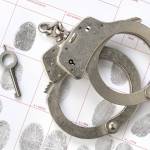Guns laws in New York have been changing and evolving – and getting harsher – for decades. Anyone selling firearms in New York must obtain special licensing and comply thoroughly with state and federal gun laws. Any failure to comply with any aspect of New York’s gun laws is a serious crime in this state. If you are charged in the New York City area with illegally selling guns or with any violation of New York gun laws, speak at once with an experienced Long Island criminal defense attorney.
One of the most serious crimes in the state of New York is the criminal possession of a weapon. Although the law allows for varying “degrees” and punishments, criminally possessing a weapon in New York is generally considered a violent offense requiring a minimum term of incarceration.
Criminal possession of a weapon in the second degree is a class C felony punishable by up to 15 years in prison. A possession in the third degree is a class D felony and punishable by up to 7 years in prison. Finally, a criminal possession of a weapon in the fourth degree is a class A misdemeanor and punishable by a maximum of one year in jail. Any of these charges could also lead to deportation for any defendant that is not a citizen of the United States.
The possession of an unlicensed firearm is illegal in New York with no exceptions. If you possess a loaded firearm away from your home or business without a permit, you can be charged with criminal possession of a weapon in the second degree. Even if you have no criminal history, a conviction for criminal possession of a weapon in the second degree carries a minimum sentence of three-and-a-half years in state prison.
Taking part in any way in the illegal distribution of firearms is a crime even if you are not in physical possession of a weapon. Whether you are importing, exporting, transporting, packaging, or simply seeking buyers and arranging transactions, you can be convicted of gun trafficking. Specific charges may be more or less severe depending on the type and amount of weapons involved. If modified firearms or automatic weapons are involved, the charges and punishments will be increased. Charges and punishments are also stiffer if the firearms are stolen. In some cases those convicted of trafficking in firearms can face up to 25 years in prison.
Misconceptions About Weapons Charges
Anyone who watches cop shows or detective movies might be familiar with stories of bad guys opting for fake guns in the hopes of avoiding more serious criminal charges if caught committing a crime. Unfortunately, this idea is largely a legal superstition that has no bearing on New York law. In New York, the fact that a weapon used in an offense was fake or imaginary is no defense against serious criminal charges. In most jurisdictions, it is not the legitimacy of the weapon that is important, but the level of fear or apprehension that the supposed weapon creates in the mind of the victim.
Even though most victims of criminal offenses involving weapons will report a feeling of fear, the actual emotion is not required to successfully prosecute a charge for a crime like armed robbery or assault. “Anticipation” is a better word. If a person anticipates the threat of death or serious bodily harm, whether or not the source of the anticipation is real or fake, the creator of that anticipation may be criminally liable for assaulting or otherwise committing an armed offense against the victim, just as if the weapon used had been real.
The state of New York punishes crimes that involve weapons, real or fake, with stiff penalties. If found guilty of a weapons related offense, a suspect could face several years in prison. This is in addition to the stigma that will be attached by society to anyone accused of a weapons related offense. Even without evidence or a conviction, simply being accused of a serious crime involving a weapon can have dire consequences on a person’s ability to live a normal life. It is not uncommon for those accused of serious crimes to feel as if everyone in the whole world, even their friends and family, have turned their backs on them.
Exercise Your Rights
Under the American criminal justice system, suspects have the right to be considered innocent until found guilty. This means that no matter how serious the charges against a person, the accused has the right to tell his or her side of the story in an unbiased court of law, as well as the right to pose questions to accusers under oath.
Another right which every citizen enjoys, whether accused of a crime or not, is the right to remain silent. This means that police, investigators or agents can’t force a person to make a statement if the person doesn’t want to. When a person is accused of a weapons related offense, attorneys recommend that the accused remain silent except to ask for legal counsel, and to find experienced legal counsel as quickly as possible.
Hire A Long Island Weapons Charges Attorney
If you are arrested and charged for any weapons crime in New York, don’t try to act as your own lawyer, exercise politely your right to remain silent, and insist on your right to have an attorney present during any questioning. Then as quickly as possible, retain the counsel of a skilled Long Island criminal defense attorney who can dismantle the prosecution’s case, ensure that any searches were conducted legally, punch holes in the police officers’ stories, determine whether the weapon was operable, and provide evidence and testimony on your behalf.
Being charged with a gun crime does not mean that you will be convicted – a prosecutor must prove your guilt beyond a reasonable doubt. If you’re accused of violating any New York gun law in Mineola, Nassau County, Suffolk County, or anywhere in New York City, fight the charge and put your case immediately in the hands of an experienced Long Island criminal defense attorney.











Comments are closed.